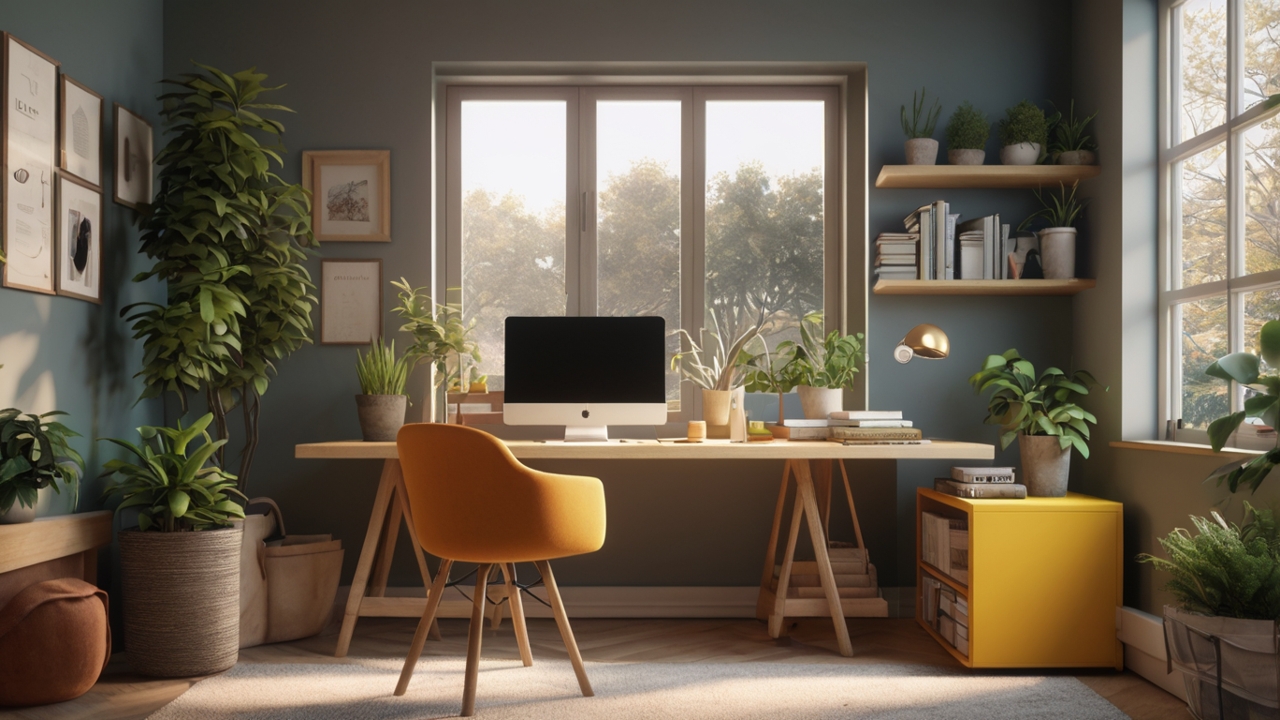How to Create the Perfect Study Environment

How to Create the Perfect Study Environment
Your study environment significantly impacts your ability to focus and retain information. Let's create a space that sets you up for academic success.
The Science of Environment
Your surroundings affect your brain's ability to focus.
Key factors:
- Lighting: Affects alertness and mood
- Temperature: Impacts cognitive performance
- Noise: Influences concentration
- Organization: Reduces cognitive load
- Comfort: Affects endurance
Choosing Your Location
Different spaces work for different tasks.
Home Study Space
Advantages:
- Convenient and comfortable
- Personalized setup
- No commute
- Available 24/7
Setup tips:
- Dedicate a specific area
- Separate from relaxation spaces
- Good lighting and ventilation
- Minimal distractions
Library
Advantages:
- Quiet atmosphere
- Academic environment
- Resources available
- Social accountability
Best for:
- Deep focus work
- Research projects
- Avoiding home distractions
- Group study sessions
Coffee Shops
Advantages:
- Ambient noise can help focus
- Change of scenery
- Social atmosphere
- Caffeine access
Best for:
- Creative work
- Reading
- Light studying
- Variety in routine
Outdoor Spaces
Advantages:
- Fresh air and nature
- Vitamin D from sunlight
- Reduced stress
- Pleasant atmosphere
Best for:
- Review sessions
- Reading
- Memorization
- Nice weather days
Optimizing Your Physical Space
Lighting
Proper lighting reduces eye strain and improves focus.
Recommendations:
- Natural light is best
- Position desk near window
- Use daylight bulbs (5000-6500K)
- Avoid glare on screens
- Task lighting for reading
- Dim lights in evening
Desk Setup
Ergonomics matter for long study sessions.
Ideal setup:
- Monitor at eye level
- Chair supports lower back
- Feet flat on floor
- Elbows at 90 degrees
- Keyboard and mouse close
- Everything within reach
Temperature
Cognitive performance peaks at specific temperatures.
Optimal range: 68-72°F (20-22°C)
Tips:
- Dress in layers
- Use fan or heater as needed
- Ensure good ventilation
- Stay hydrated
Noise Management
Find your optimal sound level.
Options:
- Silence: Deep focus work
- White noise: Masks distractions
- Nature sounds: Calming background
- Instrumental music: Light tasks
- Binaural beats: Enhanced focus
Tools:
- Noise-canceling headphones
- White noise machines
- Focus music playlists
- Earplugs
Organization Systems
Clutter creates mental chaos.
Physical Organization
Desk essentials only:
- Current textbooks
- Notebook and planner
- Writing tools
- Water bottle
- Minimal decorations
Storage solutions:
- Shelves for books
- Drawers for supplies
- File organizer for papers
- Bins for miscellaneous items
Digital Organization
File structure:
Documents/
├── Semester_Fall_2024/
│ ├── Math_101/
│ ├── English_201/
│ └── History_150/
└── Resources/
Best practices:
- Consistent naming conventions
- Regular backups
- Cloud storage sync
- Desktop stays clean
- Bookmark important sites
Minimizing Distractions
Digital Distractions
Strategies:
- Phone in another room
- Use website blockers
- Turn off notifications
- Close unnecessary tabs
- Use focus apps
- Airplane mode
Helpful apps:
- Forest (phone blocking)
- Freedom (website blocking)
- Cold Turkey (computer blocking)
- Focus@Will (music)
Physical Distractions
Solutions:
- Door closed or "studying" sign
- Headphones (even without music)
- Study during quiet hours
- Communicate boundaries
- Remove tempting items
Creating the Right Atmosphere
Visual Elements
Motivational additions:
- Goals written visibly
- Inspirational quotes
- Progress tracker
- Achievement board
- Plants (improve air quality)
Color psychology:
- Blue: Promotes focus and calm
- Green: Reduces eye strain
- Yellow: Stimulates creativity
- Avoid red: Can increase stress
Scent
Certain scents enhance cognitive function.
Focus-enhancing scents:
- Peppermint: Alertness
- Rosemary: Memory
- Lemon: Concentration
- Lavender: Stress reduction
- Coffee: Familiarity and comfort
Methods:
- Essential oil diffuser
- Scented candles
- Fresh flowers
- Natural ventilation
Multiple Study Spaces
Variety prevents boredom and enhances memory.
Context-dependent memory:
- Different locations for different subjects
- Variety aids recall
- Prevents monotony
- Matches task to environment
Example rotation:
- Monday: Home desk (math)
- Tuesday: Library (research)
- Wednesday: Coffee shop (reading)
- Thursday: Study room (group work)
- Friday: Home desk (review)
Supplies and Tools
Essential supplies:
- Quality notebooks
- Variety of pens/pencils
- Highlighters
- Sticky notes
- Index cards
- Calculator
- Laptop/tablet
- Chargers
Nice-to-have:
- Desk lamp
- Whiteboard
- Timer
- Bookstand
- Laptop stand
- Comfortable chair cushion
Personalizing Your Space
Make it yours while keeping it functional.
Balance:
- Personal touches for comfort
- Not so much it's distracting
- Reflects your personality
- Inspires and motivates
Ideas:
- Photos of loved ones
- Artwork you enjoy
- Meaningful quotes
- Achievement reminders
- Vision board
Maintaining Your Space
Daily:
- Clear desk at end of session
- Put materials away
- Throw away trash
- Organize papers
Weekly:
- Deep clean desk
- Reorganize supplies
- File papers
- Dust and vacuum
- Refresh decorations
Conclusion
Your study environment is a tool for success. Invest time in creating a space that works for you, and you'll find studying becomes easier and more enjoyable. Remember, the perfect study environment is one that helps YOU focus and learn effectively. Experiment, adjust, and create your ideal learning space.